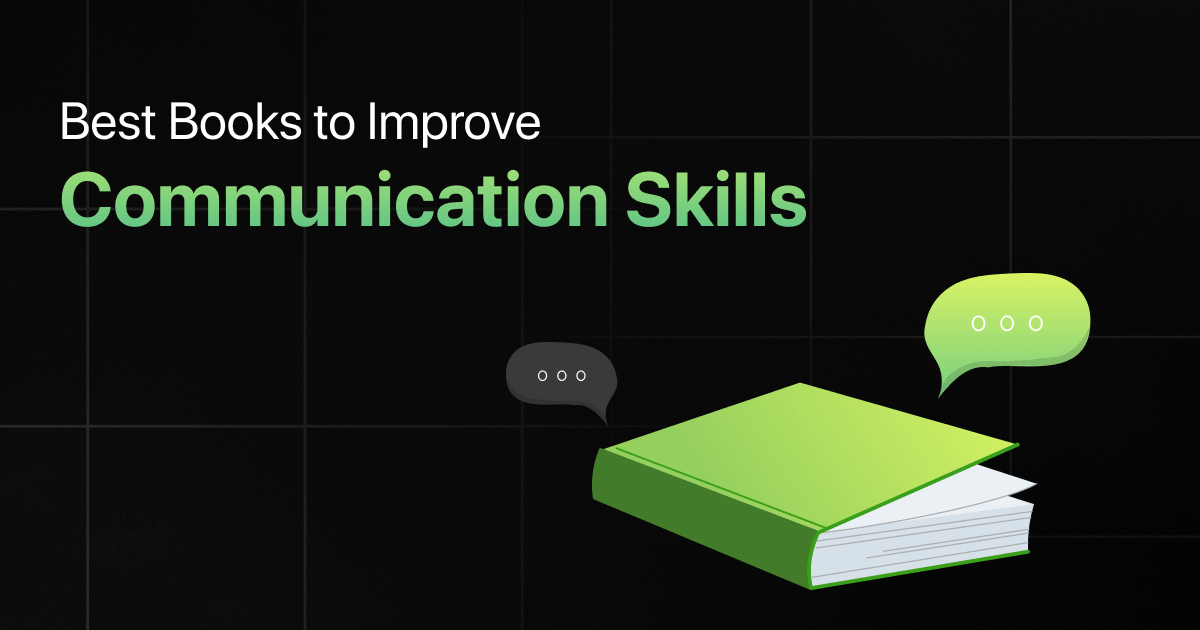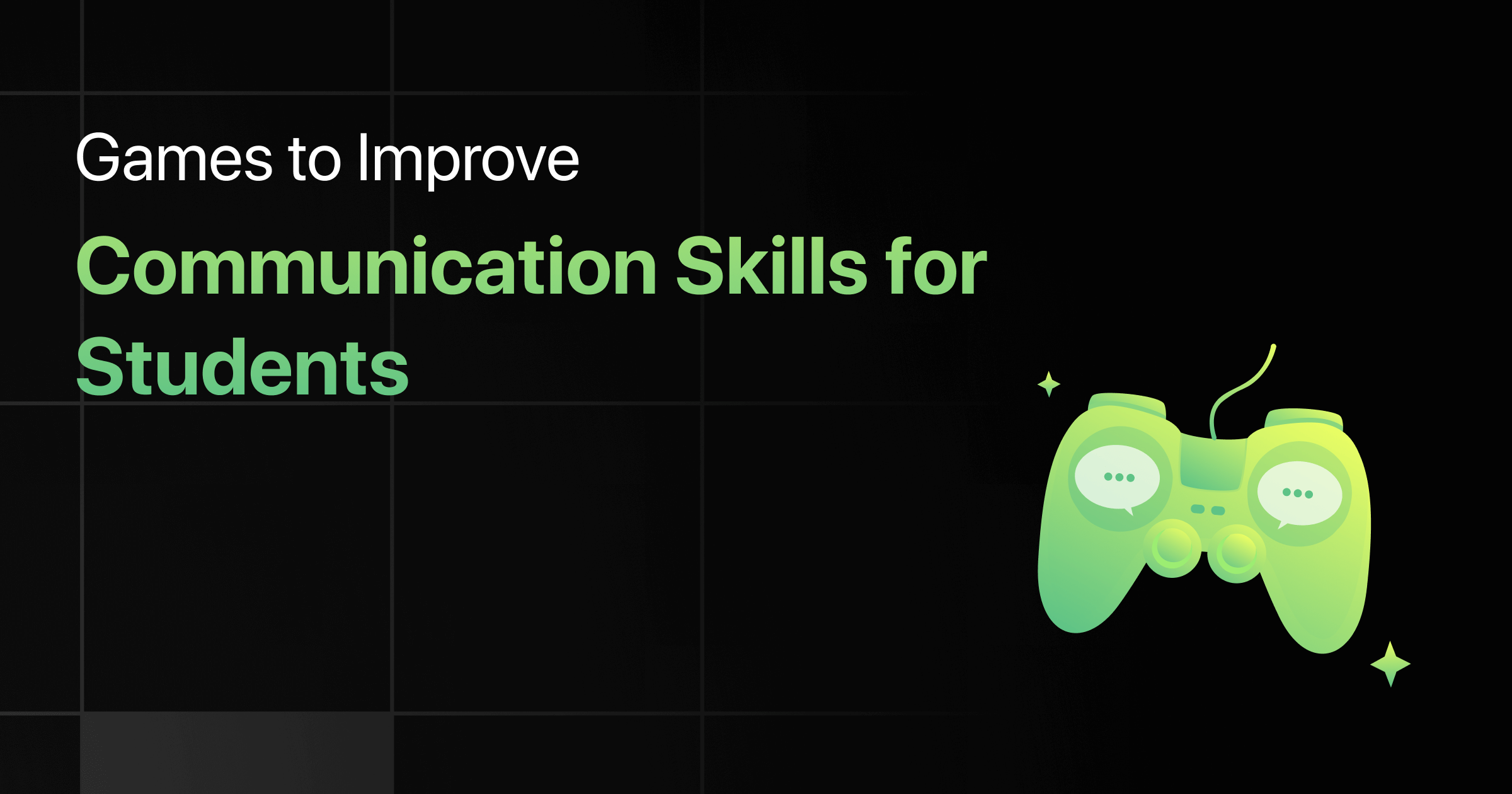Different Types of Communication Skills

Have you ever wondered why some people seem to effortlessly communicate with others, while others struggle to get their message across?
The answer lies in having effective communication skills. There are different types of communication skills that are necessary for success in both personal and professional relationships.
So, let’s dive in and learn more about different types of communication skills.
Different Types of Communication Skills
The following are the different types of communication skills:
1. Verbal Communication
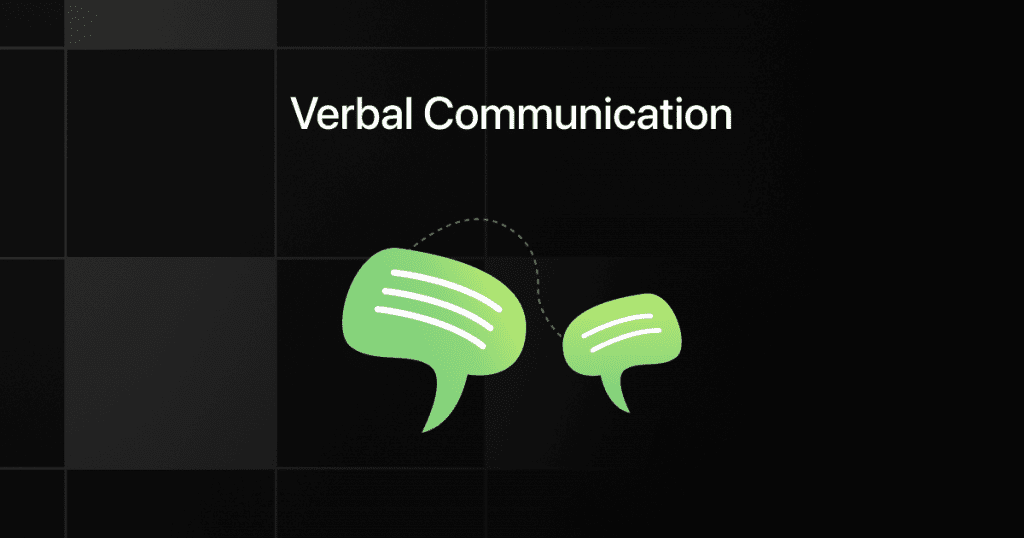


Verbal communication is the most common and basic form of communication. It involves the use of spoken words to convey messages or exchange information. The effectiveness of verbal communication is determined by the clarity, tone, and context of the message.
One practical example of effective verbal communication is delivering a speech. Imagine you are giving a presentation to a group of people. In order to effectively communicate your message, you must use clear and concise language, speak in a confident and engaging tone, and adjust your pace and tone to suit the context of the presentation. By doing so, you can capture your audience’s attention and convey your message effectively.
On the other hand, poor verbal communication skills can lead to misunderstandings, confusion, and even conflict. That’s why one of the major aims and objectives of communication skills is to learn empathy, clarity, and understanding.
For example, if you are speaking in a loud or aggressive tone, using unclear or inappropriate language, or failing to listen actively to your audience, your message may be misinterpreted, and your communication may be ineffective.
2. Non-Verbal Communication
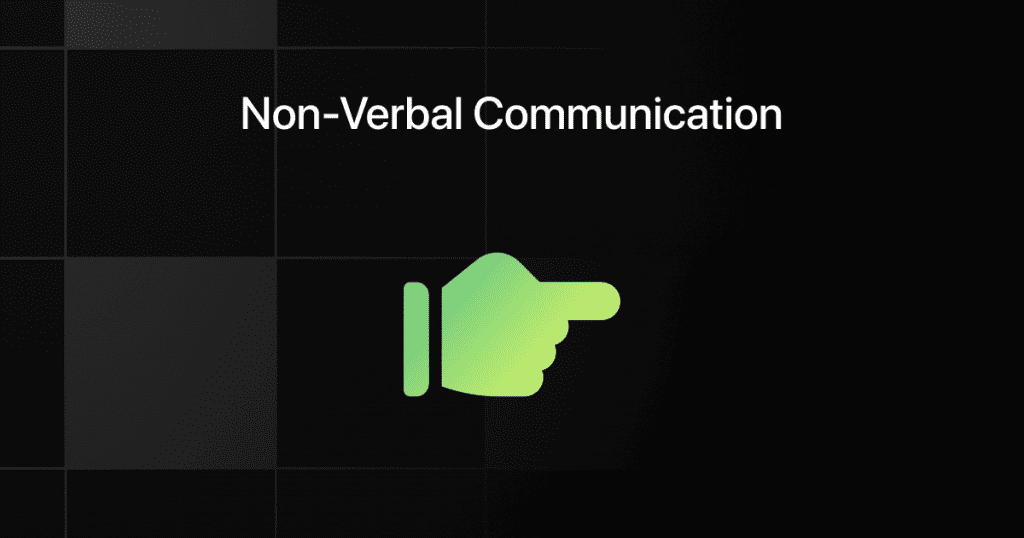


Non-verbal communication is a crucial aspect of effective communication. It refers to the use of body language, facial expressions, and gestures to convey messages and emotions. It is estimated that non-verbal communication accounts for more than 50% of the overall message that is communicated.
One practical example of non-verbal communication is the use of eye contact. Eye contact can convey a range of emotions, from interest and engagement to boredom or discomfort. When someone makes eye contact with you while you’re speaking, it shows that they are paying attention and engaged in the conversation.
Facial expressions are also a key component of non-verbal communication. Smiling, frowning, and other facial expressions can convey a range of emotions, from happiness and joy to anger and frustration. For example, a smile can indicate happiness or agreement, while a furrowed brow may indicate confusion or disagreement.
Another example of non-verbal communication is body posture. The way we sit or stand can communicate a lot about our emotions and attitudes. For instance, standing tall and open with your arms at your sides can convey confidence and openness, while slouching or crossing your arms can signal defensiveness or discomfort.
3. Written Communication
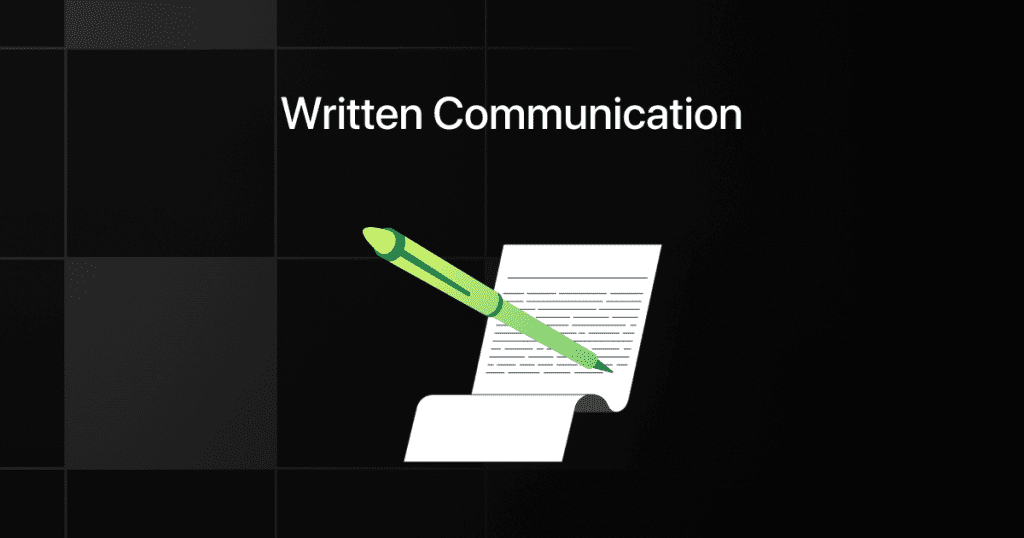


Written communication is an essential aspect of communication skills, especially in today’s digital age, where written messages are exchanged more frequently than ever before. Written communication involves the use of written words to convey ideas, thoughts, and information to others. It can take various forms, such as emails, text messages, reports, memos, and letters.
Effective written communication is critical in various settings, such as business, education, and personal relationships. For example, in a business setting, a well-crafted email or report can make a positive impression on clients, colleagues, or supervisors.
A practical example of effective written communication is writing a cover letter for a job application. A cover letter is a written document that accompanies a resume and provides additional information about the candidate’s skills, qualifications, and experience.
A well-written cover letter can increase the chances of getting an interview and ultimately, the job. That’s exactly why it’s important to improve communication skills. Using it right is a game definer for students!
4. Listening Skills
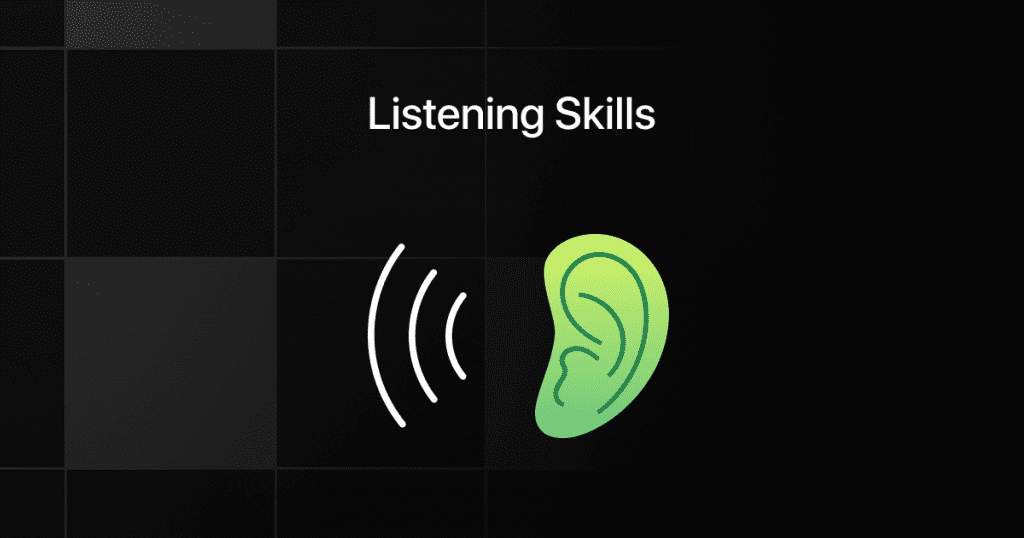


Listening is a crucial communication skill that is often overlooked or undervalued. It involves actively hearing and interpreting messages being communicated by others, which allows you to understand their perspective, build trust, and respond appropriately. However, many people struggle with listening skills and often fail to listen attentively.
For example, imagine you are in a meeting with your boss and colleagues discussing a new project. You are excited to share your ideas and opinions, but as soon as you start speaking, you notice that your boss is scrolling through their phone and not paying attention. You feel frustrated and disrespected, which can lead to a breakdown in communication and hinder the success of the project.
To avoid this type of scenario, it’s essential to practice active listening. This means focusing your attention on the speaker, asking clarifying questions, and summarizing what you’ve heard to ensure you understand their message correctly.
For example, you could try paraphrasing what the speaker has said, such as “So if I understand you correctly, you’re suggesting that we prioritize this aspect of the project first.” This shows the speaker that you are engaged and invested in the conversation, and helps to build trust and understanding.
Frequently Asked Questions
1. What are the different types of communication skills?
There are several different types of communication skills:
- Verbal communication
- Non-verbal communication
- Written communication
- Listening skills
2. Why are communication skills important for college students?
Communication skills are essential for college students because they help to foster stronger relationships with peers, professors, and potential employers. Effective communication can help students to express their ideas clearly, and collaborate with others.
3. How long does it take to master communication skills?
The time it takes to master communication skills can vary depending on the individual and the specific skills being developed. But, with consistent practice and dedication, anyone can improve their communication skills and become an effective communicator.
Final Words
Effective communication skills are essential for success in personal and professional settings. Whether you are communicating through writing, speaking, or nonverbal cues, it is important to be aware of the different types of communication skills and how to utilize them to convey your message effectively.
It’s a gift to know the art of effective communication. Yet, communication is a skill that anyone could master. There are several YouTube channels, books, and games to help you in this pursuit.
If you have any thoughts or questions about different types of communication skills, please feel free to leave a comment below. We’d love to hear from you and continue the conversation on this important topic.
Related Posts
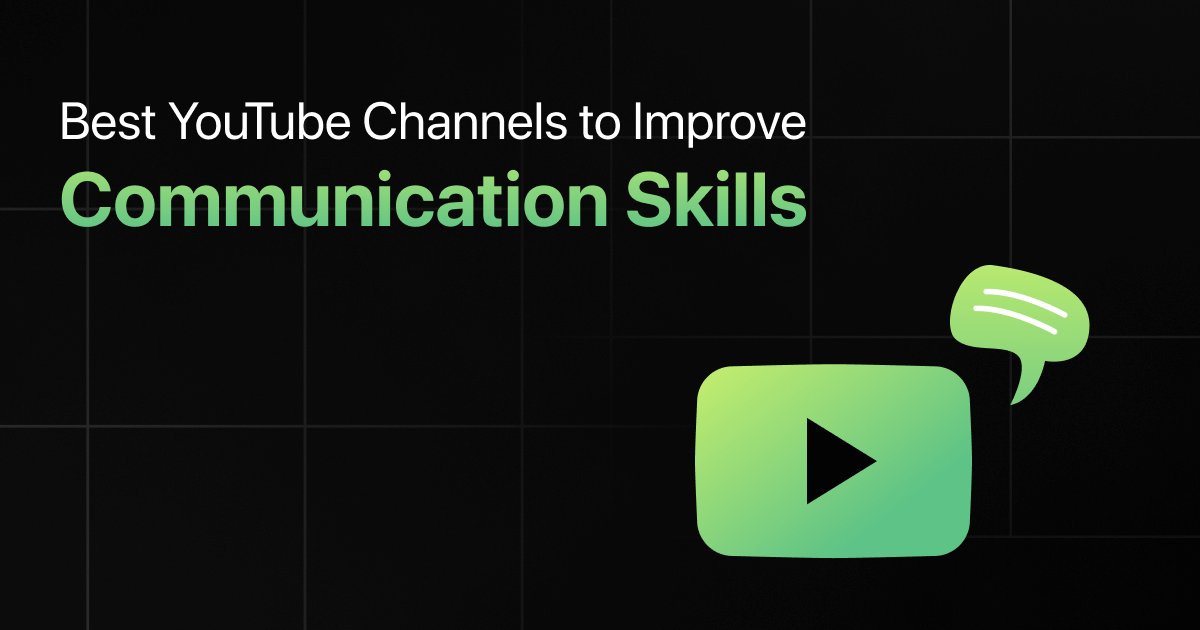

Best YouTube Channels to Improve Communication Skills
Are you struggling to effectively communicate with others? Do you want to improve your public speaking or presentation skills? Look …







